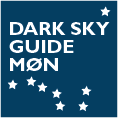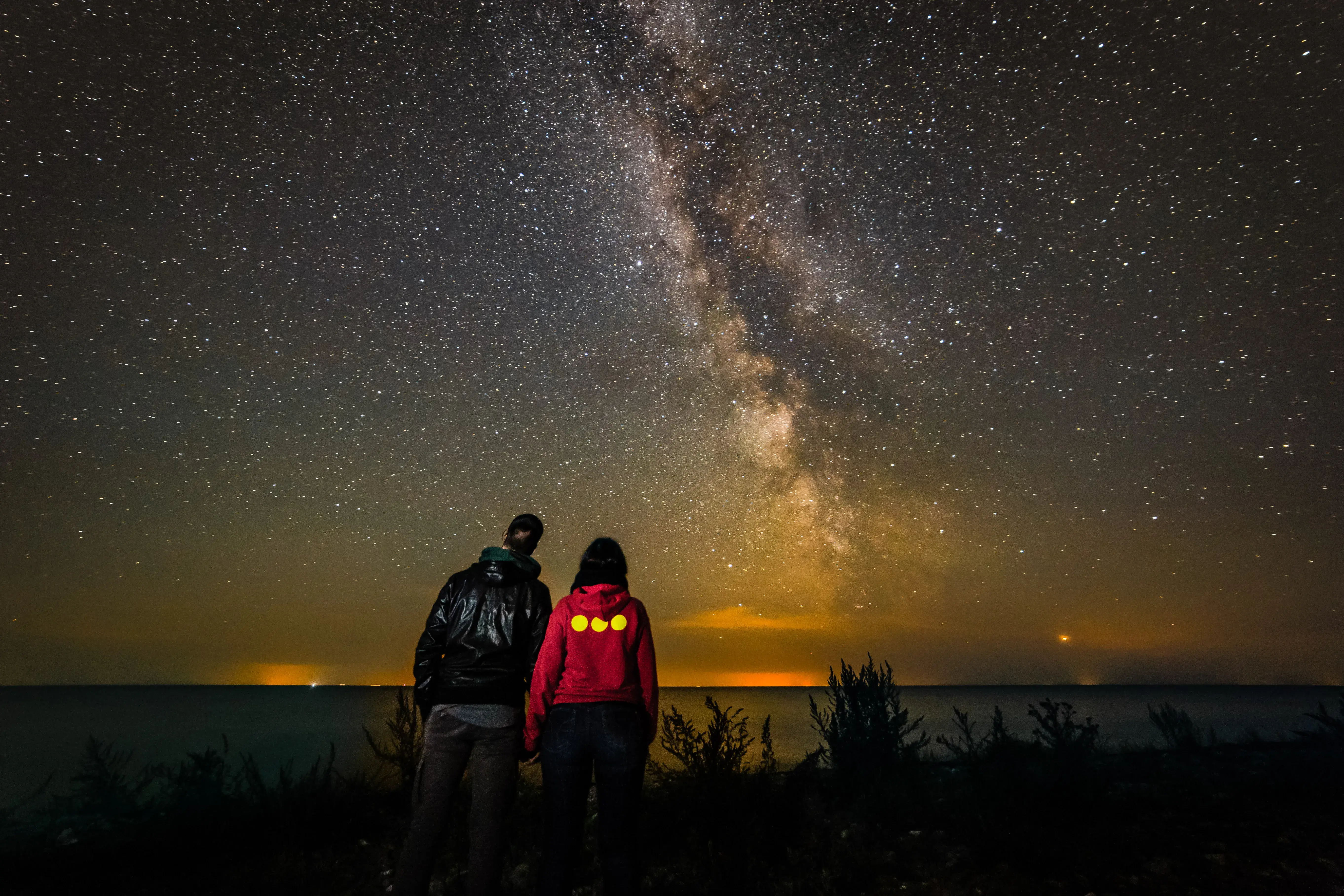Here you see some of the most frequently asked questions about our guided tours.
If you have any other questions, please feel free to contact us.
What happens if the weather is bad?
We let participants choose an evening or night they want to go out for a guided tour.
The weather on Møn can change at short notice, and sometimes it clears up even though the whole evening has been cloudy. Therefore, we often take the chance and hope that the weather suddenly clears up.
While we wait for the sky to clear, your guide will tell about the creation of the Dark Sky park, and why darkness is important for our circadian rhythm, and the lives of the animals.
We cannot guarantee good weather, for obvious reasons. Therefore, we recommend that you look at the weather forecast for the day you want to go on a trip. You can see the weather forecast here.
If the weather gets really bad, we can postpone the trip to another date which you are free to choose, or give a credit note so you can book a trip on another date.
Can we book a tour for a future date?
Yes, you can book a tour for a future date. But we don't recommend it, since you don't know what the weather will be like.
If you book a tour, I will reserve the evening for you, and will choose the activity depending on the weather. If it is cloudy, we obviously won't be able to see any stars or planets, but we can enjoy nature by night, the sounds of nocturnal animals, the different smells and our heightened senses in the darkness.
What can we expect to see on a guided tour?
What we can see depends a lot on the season, the phase of the moon, and whether there are special events, such as meteor showers. Prior to a guided tour, your guide will tell you about what we can expect to see on the given night.
If the moon is in view, we can use the telescopes to take a closer look at craters and seas on it.
In the summer, when the nights are very bright, we will often be able to see luminous night clouds. The brighter planets are nice to see, and we can study the moons of Jupiter and Saturn.
In autumn and winter, until spring, the Milky Way will be very beautiful, and when our eyes have become accustomed to the darkness, we can see it as a shining band across the sky. The dark areas of dust between the stars will stand out clearly.
The Andromeda Galaxy, the beautiful globular star cluster in Hercules, and the Pleiades cluster (seven sisters) are some of the clearest objects to see when it is dark.
In winter, the large nebula in Orion's sword is beautiful to see.
If we make photos, we can see much more in the images, as the camera can capture more light in long exposures than our eyes can.
What is the price of a Dark Sky tour?
The price depends on how many of you are, what we are going to do and for how long.
Here is a price list with indications of the price, but since no trips are the same, they can be adjusted based on your requirements.
Contact me and we will find out what it will cost for a trip that is planned for you.
Does it cost extra to have photos taken of us?
Yes, there is an extra fee for me to take photos.
The time spent on photography counts in the time we have agreed to be out, and depending on how many photos we take, there will also be additional time I spend finishing and sending the photos.
Are your tours wheelchair accessible?
Yes.
We make sure to accommodate wheelchair users, and other disabled participants.
If you are unable to come to our location, we will come to where you are, if there is no light pollution there. If not, we will arrange a suitable meeting place, and bring all equipment there.
That way, we can ensure that everybody can join on a Dark Sky Experience.
Which steps have you taken in relation to Covid-19?
After each trip, we clean equipment thoroughly so that we do not risk infection between groups.
We keep our distance and follow the guidelines from the National Board of Health.
Can children join a Dark Sky Tour?
Yes, as long as the children's parents take care of the children, children can also have a great experience on a guided tour, and we have had many happy (and sleepy) children visit us.
Children can learn to appreciate nature and science, in a practical and exciting way.
Depending on the age of the children, we choose places that are suitable. We do not bring small children up to the edge of Møns Klint at night, but we will preferably stay on a field or a beach, or where you are staying for the night.

